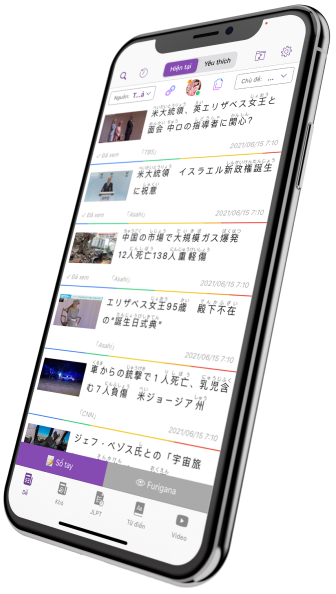東京都内の
大手ホテルを
運営する15
社が
客室単価などの
内部情報を
交換していたのは、
不正に
価格を
引き上げるカルテルにつながり、
独占禁止法違反にあたる
おそれが
あるとして、
公正取引委員会が
再発防止を
求める警告を
出しました。
Fifteen major hotel operators in Tokyo exchanged internal information such as room rates, which could lead to a cartel that illegally raises prices and may constitute a violation of the Antimonopoly Act. The Japan Fair Trade Commission has issued a warning demanding measures to prevent recurrence.
警告を受けたのは、都内にある「ホテルニューオータニ」や「帝国ホテル 東京」、「The Okura Tokyo」などの大手ホテルを運営する15社です。
The 15 companies that received warnings are major hotel operators, including Hotel New Otani in Tokyo, Imperial Hotel Tokyo, and The Okura Tokyo.
公正取引委員会によりますと、15社の担当者らは毎月、ホテルの宴会場や会議室で持ち回りで開かれる「FR会=フロント・リザベーション会」と呼ばれる会合に参加し、客室の稼働率や平均単価、予約状況や将来の客室単価の設定方針などの内部情報を交換していたということです。
According to the Japan Fair Trade Commission, representatives from 15 companies participated in meetings called FR meetings Front Reservation meetings, which were held in rotation every month at hotel banquet halls or conference rooms. At these meetings, they exchanged internal information such as room occupancy rates, average prices, reservation statuses, and policies for setting future room rates.
「FR会」は数十年前から開かれていて、実際に宿泊料金を一斉に引き上げるなどの行為は確認されませんでしたが、情報共有のフォーマットを作って一覧表で情報交換し、他社の情報を参考にして宿泊料金を設定していたホテルもあったということです。
The FR meetings have been held for several decades, and although there were no confirmed cases of simultaneously raising accommodation fees, a format for sharing information was created, and information was exchanged in list form. It is said that some hotels set their accommodation fees based on information from other companies.
公正取引委員会は、今後、不正に価格を引き上げるカルテルにつながり、独占禁止法の「不当な取引制限の禁止」に違反するおそれがあるとして、再発防止を求める警告を出しました。
The Japan Fair Trade Commission has issued a warning calling for measures to prevent recurrence, stating that there is a risk of violating the Antimonopoly Acts prohibition of unreasonable restraint of trade by leading to cartels that unfairly raise prices.
15社は、2024年秋に会合をやめたということです。
15 companies reportedly stopped holding meetings in the fall of 2024.
都内のホテルの宿泊料金はコロナ禍のあと、外国人客の増加などで値上がりが起き、宿泊料金が高止まりしていて、公正取引委員会の担当者は8日の会見で「東京や日本を代表するホテルなどが独占禁止法上問題となり得る情報交換をしていたことを業界として強く認識してもらいたい」と指摘しました。
After the COVID-19 pandemic, hotel accommodation prices in Tokyo have risen due to an increase in foreign guests, and the prices remain high. At a press conference on the 8th, an official from the Fair Trade Commission pointed out, We want the industry to be fully aware that hotels representing Tokyo and Japan may have been exchanging information that could pose problems under the Antimonopoly Act.
公正取引委員会は、ほかのエリアでも同じような情報交換が行われている可能性があるとして、全国のホテルなどが加盟する2つの業界団体に対して独占禁止法の順守を周知徹底するよう要請しました。
The Japan Fair Trade Commission has requested two industry groups, to which hotels and others nationwide belong, to thoroughly ensure compliance with the Antimonopoly Act, as there is a possibility that similar information exchanges may be taking place in other areas as well.
会社「真摯に受け止め法令順守徹底する」
ホテルの運営会社の「ニュー・オータニ」や「帝国ホテル」は「警告を真摯(しんし)に受け止め法令順守を徹底する」などとコメントしています。
The companies, such as New Otani and Imperial Hotel, which operate the hotels, commented, We take the warning seriously and will thoroughly comply with laws and regulations.
警告対象となった15ホテル
(五十音順)
「浅草ビューホテル」
「グランドニッコー東京 台場」
「京王プラザホテル」
「ザ・プリンス パークタワー東京」
「シェラトン都ホテル東京」
「The Okura Tokyo」
「セルリアンタワー東急ホテル」
「第一ホテル東京」
「帝国ホテル 東京」
「ハイアットリージェンシー東京」
「パレスホテル東京」
「ホテル椿山荘東京」
「ホテルニューオータニ」
「ホテルメトロポリタン」
「ロイヤルパークホテル」
専門家「警告 カルテルのおそれ 業界に認識させる意義がある」
今回の公正取引委員会の警告について、独占禁止法に詳しい多田敏明弁護士は「現在、ホテルの料金がどんどん上がっている中で競合他社との間での情報交換、特に価格に関する情報交換に対してはカルテルのおそれがあるということを業界に認識させる意義がある」と話しました。
The 15 hotels that received warnings in alphabetical order: Asakusa View Hotel, Grand Nikko Tokyo Daiba, Keio Plaza Hotel, The Prince Park Tower Tokyo, Sheraton Miyako Hotel Tokyo, The Okura Tokyo, Cerulean Tower Tokyu Hotel, Dai-ichi Hotel Tokyo, Imperial Hotel Tokyo, Hyatt Regency Tokyo, Palace Hotel Tokyo, Hotel Chinzanso Tokyo, Hotel New Otani, Hotel Metropolitan, Royal Park Hotel. Expert: Warning: Risk of cartel behavior—significance in raising industry awareness. Regarding this warning from the Japan Fair Trade Commission, lawyer Toshiaki Tada, an expert on antitrust law, commented, With hotel prices rising rapidly, exchanging information with competitors—especially pricing information—poses a risk of cartel behavior. Issuing this warning is significant in making the industry aware of this risk.
競合他社の間で情報交換を行う際の注意点については「極めてセンシティブであり違反になりかねないということを十分に意識する必要がある。
When exchanging information with competitors, it is extremely sensitive and you must be fully aware that it could constitute a violation.
が、どういう
目的で、
どんな情報を
交換しているのかという3つの
ポイントに
注意が
必要で、
この内容によっては、カルテルに
近い行動だとのちのち
評価されかねない。
It is important to pay attention to the three points of who is exchanging information, for what purpose, and what kind of information is being exchanged. Depending on the content, such actions could later be evaluated as being close to a cartel.
や
将来の
需要を
予測するような
情報を
共有すると、
業者間で
価格競争をなくして
いくような
方向に
働く可能性が
高く、カルテルにつながるリスクが
高くなる」と
指摘しています。
Among them, it is pointed out that sharing information such as price information or forecasts of future demand is highly likely to lead to the elimination of price competition among businesses, increasing the risk of forming cartels.
企業側が取る対策について、「少なくとも過去にカルテル事件や談合事件で摘発された業界の企業は、担当者が競合他社と会う時に必ず事前に報告をさせたり、会社の了承を取ったりするような仕組みを採っている。
Regarding the measures taken by companies, At the very least, companies in industries that have been exposed for cartel or bid-rigging incidents in the past have adopted systems where those in charge are required to report in advance or obtain company approval whenever they meet with competitors.
と
接触する
場面が
あるかきちんと
社内で
アンケートを
定期的に
取り、
接触する
場面というものを
会社として
把握し
コントロールすることが
重要だ」としています。
It is important for the company to regularly conduct internal surveys to determine whether there are any situations where employees come into contact with other companies, and to understand and control such situations as a company.




















